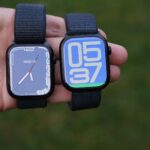Comparative and superlative adjectives are essential components of English grammar, allowing us to describe the differences between nouns and express degrees of quality. Understanding how to use them correctly is crucial for clear and effective communication. This article will explore the rules of comparative and superlative adjectives, providing clear examples to help you master these forms and enhance your English language skills.
Understanding Comparative Adjectives
Comparative adjectives are used to highlight the differences between two nouns. They indicate that one noun possesses a quality to a greater or lesser extent than the other. The basic structure for sentences using comparative adjectives is:
Noun (subject) + verb + comparative adjective + than + noun (object)
The word “than” is a key indicator of a comparative sentence, signaling that a comparison is being made. Sometimes, the second noun in the comparison is implied or understood from the context.
Examples of Comparative Adjectives in Sentences:
- My car is faster than my neighbor’s car.
- This book is more interesting than the one I read last week.
- Learning Spanish is easier than learning Mandarin for me.
- She is taller than her brother.
- He likes playing basketball better than watching it. (Here, “than watching it” is understood).
Exploring Superlative Adjectives
Superlative adjectives, on the other hand, are used to describe a noun that is at the highest or lowest degree of a certain quality within a group. They indicate the extreme end of a scale of comparison, whether it’s the most or least of something. The structure for superlative adjectives is:
Noun (subject) + verb + the + superlative adjective + noun (object)
The word “the” precedes the superlative adjective, and often, the group being compared is specified or understood from the context.
Examples of Superlative Adjectives in Sentences:
- This is the coldest winter I can remember.
- She is the most talented singer in our school.
- Mount Everest is the highest mountain in the world.
- This is the smallest coffee shop I’ve ever been to.
- He ran the fastest in the race. (Here, “of all participants” is understood).
Forming Regular Comparative and Superlative Adjectives
The formation of comparative and superlative adjectives depends primarily on the number of syllables in the base adjective. Let’s break down the rules:
One-Syllable Adjectives
For most one-syllable adjectives, we add “-er” to form the comparative and “-est” to form the superlative. If the adjective ends in a consonant-vowel-consonant pattern, double the final consonant before adding the suffix.
| Adjective | Comparative | Superlative |
|---|---|---|
| Long | Longer | Longest |
| Short | Shorter | Shortest |
| Big | Bigger | Biggest |
| Hot | Hotter | Hottest |
| Cold | Colder | Coldest |
Two-Syllable Adjectives
For two-syllable adjectives, the rules are a bit more flexible. Some can take “-er” and “-est,” especially those ending in “-y,” “-er,” “-ow,” and “-le.” For others, and as a safer general rule, you can use “more” for the comparative and “most” for the superlative. Adjectives ending in “-y” change the “y” to “i” before adding “-er” or “-est.”
| Adjective | Comparative | Superlative |
|---|---|---|
| Happy | Happier | Happiest |
| Simple | Simpler | Simplest |
| Clever | Cleverer / More Clever | Cleverest / Most Clever |
| Gentle | Gentler / More Gentle | Gentlest / Most Gentle |
| Tilted | More Tilted | Most Tilted |
Three or More Syllable Adjectives
Adjectives with three or more syllables always form their comparative and superlative forms using “more” and “most,” respectively.
| Adjective | Comparative | Superlative |
|---|---|---|
| Beautiful | More Beautiful | Most Beautiful |
| Intelligent | More Intelligent | Most Intelligent |
| Expensive | More Expensive | Most Expensive |
| Important | More Important | Most Important |
Irregular Comparative and Superlative Adjectives
Some common adjectives have irregular forms for their comparative and superlative degrees. These need to be memorized as they don’t follow the standard rules.
| Adjective | Comparative | Superlative |
|---|---|---|
| Good | Better | Best |
| Bad | Worse | Worst |
| Little | Less | Least |
| Much / Many | More | Most |
| Far | Farther / Further | Farthest / Furthest |
Examples using Irregular Forms:
- This cake tastes better than the last one I made.
- That was the worst movie I’ve ever seen.
- He has less time to relax than he used to.
- She has more books than her brother.
- Our house is farther from the city center than theirs.
By understanding these rules and practicing with examples, you can confidently use comparative and superlative adjectives to make your English more descriptive and nuanced. Consistent practice and exposure to the English language will further solidify your grasp of these essential grammatical concepts.
